
Many people don't realize that after the purchase and hanging, curtains need to be cleaned regularly, despite our tendency not to pay attention until they become super dirty. There are a lot of things hiding somewhere in your curtains without you noticing them. Dirt and moisture are the most common ones and they are certainly not the worst problems you will encounter.
However, cleaning curtains is no easy task, especially if you want them to serve their purpose a little bit longer. Linings, embellishments, and built-in hardware are some of the things that make cleaning even more complex and troublesome.
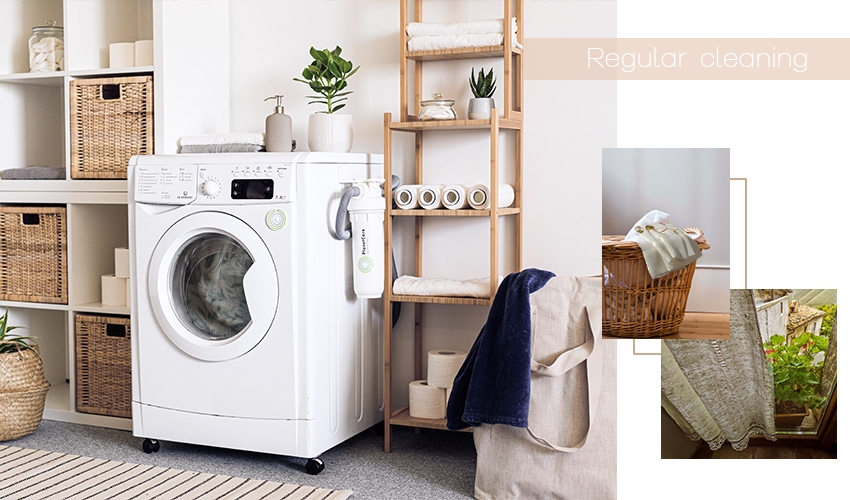
What do you need to do to wash curtains correctly? What do you need to pay attention to during this process?
Read instructions on the label
We strongly suggest that you take a look at the little tag prior to getting started because it may contain warnings such as "dry-clean only" or "hand-wash only". If you fail to follow these instructions, serious damage could ensue, and the merchant will definitely not hold responsibility for your mistake.
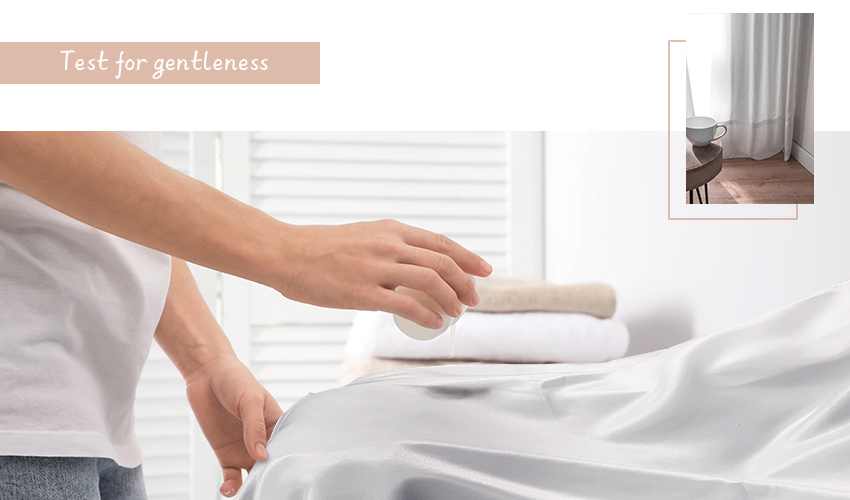
Do a spot test
We recommend this no matter what method you use to clean your curtains. If you plan to use a washing machine, pour some of the detergents on the swatch or a small inconspicuous part of the curtains (such as the back or the bottom) to see if it's compatible with your detergent, and then let the spot dry completely so you can see the end results prior to washing full panels.
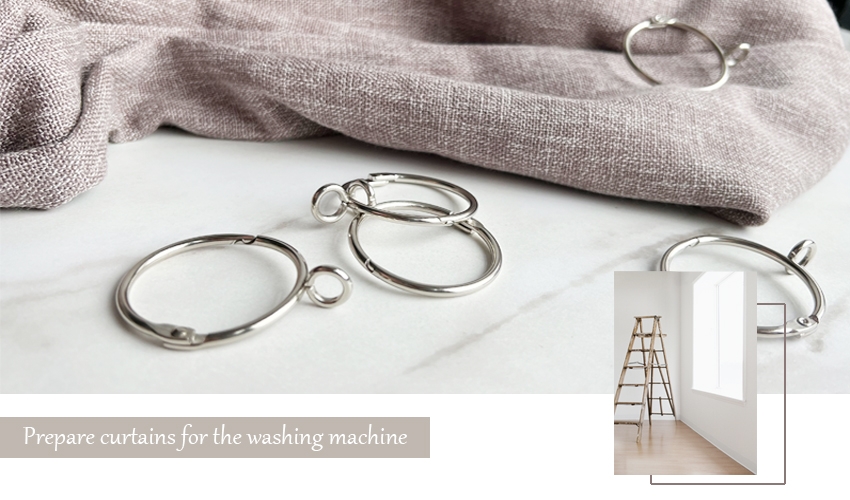
Prepare curtains for the washing machine
If using the washing machine is not prohibited according to the label, before you put your curtains in the machine, you still need to get some things done. First, you need to take off all of the hardware if you are able to do that. This will protect both your curtains and the washing machine when the machine is working. Second, shake off as much dust as you can and then vacuum the surrounding areas. Mobile and lightweight cleaning system is recommended and you might also need other tools such as a ladder so that you have the access to the top of your curtains. Shake the curtains hard from somewhere near the pole or rod when you are on the ladder. You can use a soft brush attachment to get rid of stubborn dust and dirt and vacuum regularly to prevent them from accumulating.
Use cold or cool water
You probably need to avoid using high heat settings or strong detergent unless the label tells you to do that. Bear in mind that conditions are better kept "delicate". In addition, try not to mix other things with your curtains in the washing machine.
Dry your curtains
It's a good idea to use a dryer after the curtains have been washed if the instructions on the label do not prevent you from doing that. Use low heat to dry them for a couple of minutes and shake them out and then hang them to dry. Shrinking will less likely happen to your curtains if you let them air-dry.
It would be better to hang curtains outside. Due to allergies or lack of a clothesline, you might still dry your curtains inside. If that is the case, you could use towels to absorb dripping water. If you have hardwood or laminate flooring, you may want to place things like plastic garbage bags under the towels to avoid damage caused by water.
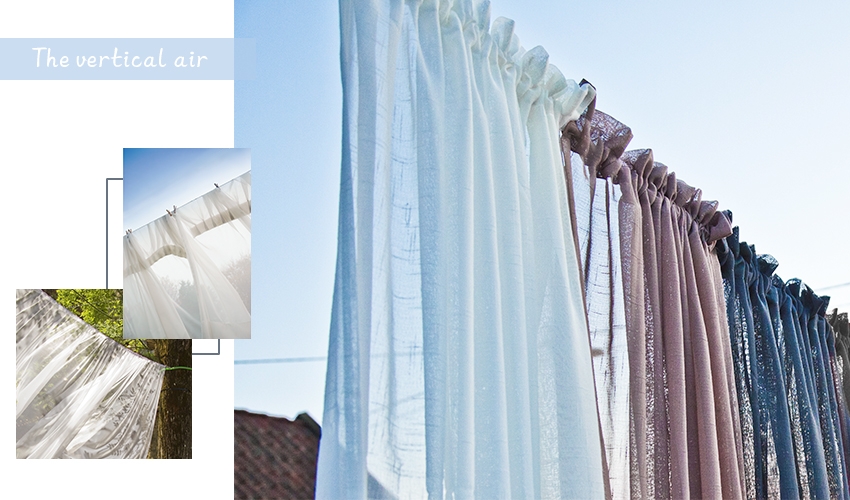
If you have limited space in your house, you can coordinate washing machine loads with air drying cycles. Check regularly the moisture level of the curtains that are air-drying, and when they are almost fully dry, start washing another set of curtains so that you don't have to wait for all of your curtains to dry or have to hang them when they are not completely dry.
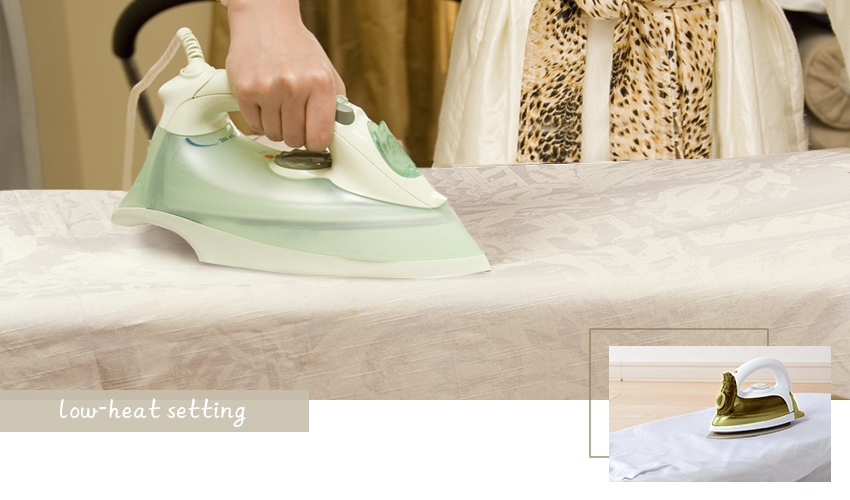
Iron your curtains
We highly recommend that you press the material on a low-heat setting before you put them back.
Of course, besides washing curtains, there are other ways to clean them, and some do not even require taking down curtains. One of the most common and important methods is steaming, which will be discussed in the next part of Cleaning Curtains. Please read Cleaning Curtains Part II: Clean Without Washing.













